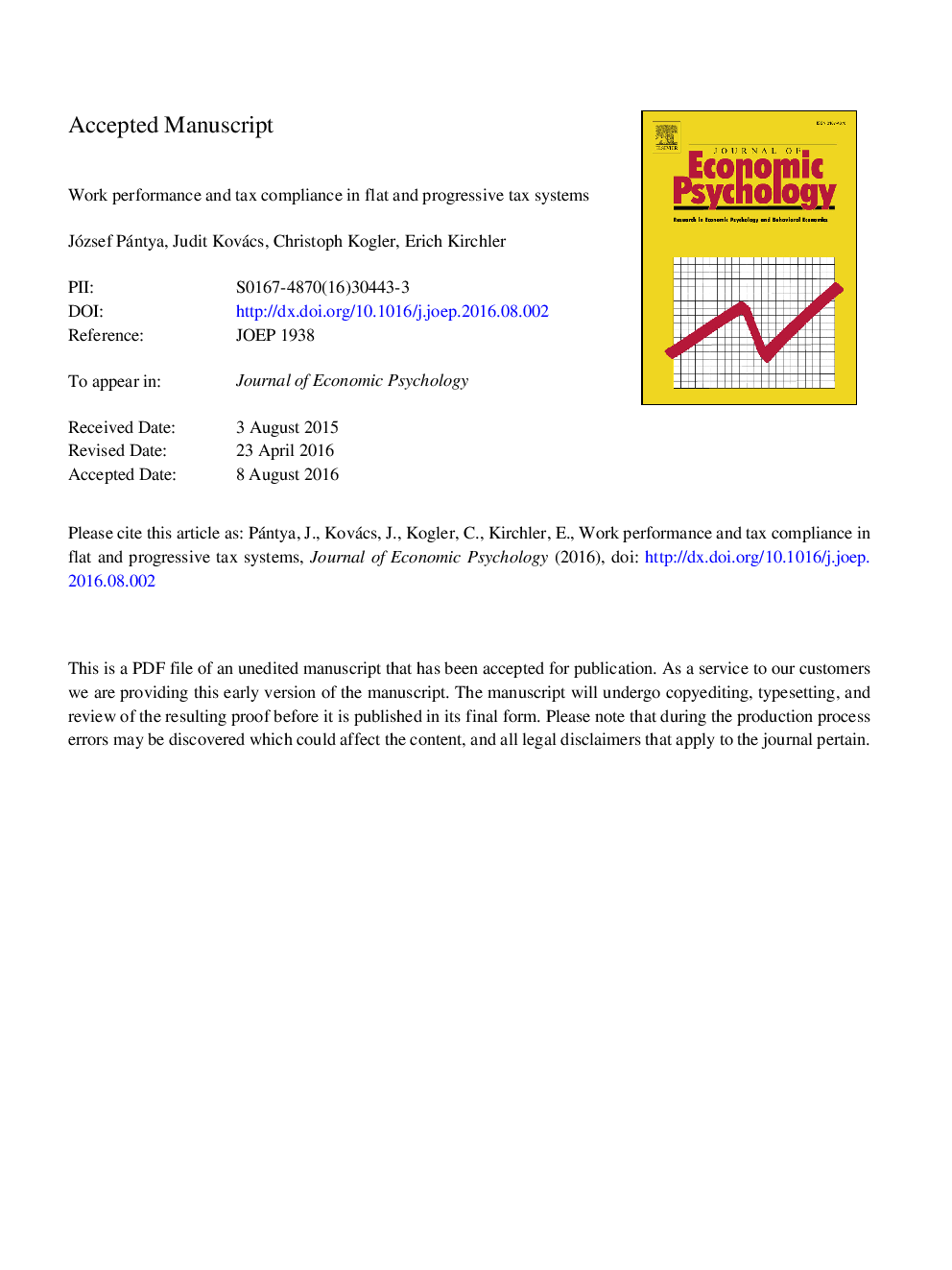| Article ID | Journal | Published Year | Pages | File Type |
|---|---|---|---|---|
| 7244285 | Journal of Economic Psychology | 2016 | 31 Pages |
Abstract
Different tax systems, and their impact on work motivation and tax compliance are significant issues in contemporary political and economic debates. The proportional feature of a flat tax system is assumed to lead to higher performance, while the fairness of the redistributive progressive tax system is assumed to result in higher tax compliance. However, empirical findings on the topic are inconclusive. Both work performance and tax compliance under different tax systems were examined in an experiment, with special attention devoted to the effect of a change in tax systems. A flat tax system was supposed to induce greater work performance, whereas a progressive tax system was expected to increase tax compliance based on fairness perceptions, allowing for the opposite effect due to higher complexity. Furthermore, it was assumed that performance and tax payments would be influenced by motives of self-interest. The design included 20 rounds with a real-effort task in each round, determining participants' experimental income. Participants (NÂ =Â 191) made decisions about their tax payments from round-to-round in four different experimental conditions: (1) a flat tax system, (2) a progressive tax system, (3) starting with a flat and changing to a progressive, and (4) starting with a progressive and changing to a flat tax system. Results indicate higher work performance in a progressive system. However, a change from a progressive tax system to a flat system led to increased tax compliance.
Related Topics
Social Sciences and Humanities
Business, Management and Accounting
Marketing
Authors
József Pántya, Judit Kovács, Christoph Kogler, Erich Kirchler,
